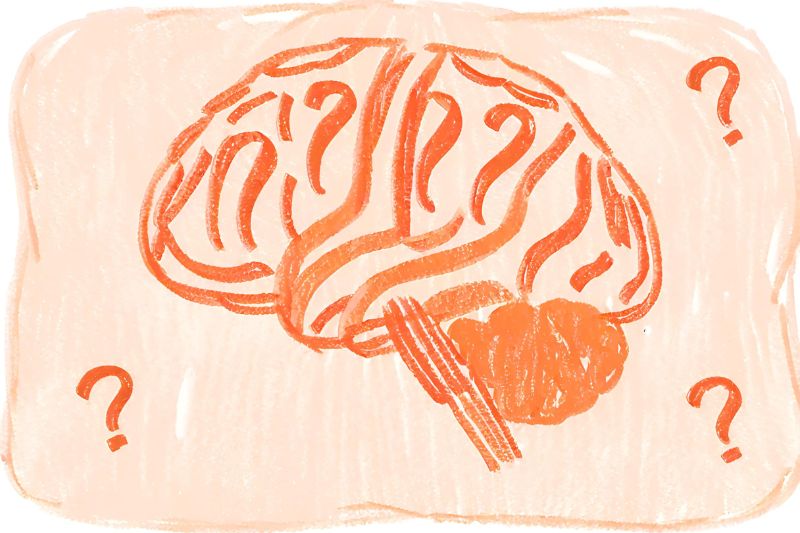3 Things You Need to Know About Dialectical Behaviour Therapy (DBT)
DBT is often used to help people who experience intense emotions achieve balance and control. Read this article to learn more about this talking therapy.

If you were to think about talking therapies, your mind may immediately land upon cognitive behavioural therapy, or CBT. There's a good reason for that: it's one of the most common forms of psychotherapy, and researchers have described it as a ‘gold standard’. However, that doesn't mean that it's the right choice for everyone. That's why it's important to be aware of alternative therapies, which may be more suitable for your needs. One of these is dialectical behaviour therapy, or DBT for short.
In this guide, we'll provide an introduction to DBT by covering three key points about this type of therapy. Read on to discover if DBT could be an appropriate method for you.
1. It was designed to help those who experience emotions intensely
Dialectical behaviour theory emerged as a result of the work of psychologist Marsha M. Linehan. She found that the standard CBT techniques used in the late 1970s were unsuitable in treating patients who were chronically suicidal. Inspired by her own experiences with mental illness, she pursued what she would later call a ‘trial-and error clinical effort’ to develop a better system for treating high-risk clients. The result of her work was the emergence of DBT: a new type of talking therapy which built upon CBT.
In its early years, DBT was used specifically to treat patients who were at high risk of suicide and who were experiencing borderline personality disorder, or BPD—one of the key symptoms of which is emotional dysregulation. DBT proved effective in treating borderline personality disorder, and is now beginning to be applied in a wider range of settings. This includes treating people dealing with issues such as self-harm, PTSD, eating disorders, anxiety, and depression.
The aim of DBT is to help clients to build a ‘life worth living’. It aims to enable people to understand their emotions and regulate them more effectively so that they can live a more balanced and fulfilled life.

2. DBT involves balancing acceptance and change
The first word in dialectical behaviour therapy is the most important one to grasp. The term dialectic has roots in philosophy, and originally referred to people with different points of view coming together to find the truth. More recently, it has come to embody a sense of achieving growth by working through one's internal contradictions.
So, why is this aspect of DBT so important? The answer lies, once again, in the patients for which this therapy was first created. These patients had previously been treated using standard CBT, with programmes focusing strongly on change. However, this led clients to feel that their personal experiences were being invalidated, leading to them refusing to cooperate with their therapist or even withdrawing from therapy altogether.
Dialectical behaviour therapy aims to find a balance. On the one hand, it accepts the patient's emotions and experiences without judgement. However, it still encourages the patient to change the way that they act. The aim is to bring together a person's reasonable mind, which solves problems rationally, and their emotional mind, which is governed solely by feelings.
By synthesising the two, a person can attain a wise mind, which recognises that its emotions are valid and meaningful whilst not allowing them to control its actions. This is achieved by providing the patient with the skills they need to address their negative thought patterns and behaviours whilst still encouraging them to show self-compassion.
3. There are four DBT skill modules
As we touched upon above, DBT includes a process known as skill training. This involves providing patients with practical solutions that can help them to better manage their emotions and control their behaviours. Skill training is broken up into four modules:
- Mindfulness — This is a key concept underpinning DBT, and can be thought of as the foundation for its other skill modules. It focuses on developing self-awareness and being present in the moment. Through mindfulness, patients are able to observe their thoughts and emotions without judgment, allowing for a deeper understanding of their inner experiences.
- Distress tolerance — When facing intense emotions or crisis situations, we can be tempted to fall back on self-destructive behaviours. Distress tolerance teaches us how to get through difficult moments by offering us ways to manage crises and avoid impulsive reactions.
- Emotional regulation — DBT is designed for patients who experience intense emotions, and who may frequently find themselves angry, depressed or anxious. This module helps patients to understand and manage their feelings, build more positive emotions, and take practical steps to maintain control.
- Interpersonal effectiveness — An essential part of developing good mental wellbeing is forging strong relationships. The interpersonal effectiveness module enables patients to achieve this by covering topics such as assertiveness, communication, navigating conflicts, expressing one's needs and setting healthy boundaries.
Each of these modules addresses a specific problem linked to poor emotional regulation. They help patients to understand both their own needs and those of others, and to find a healthy balance of the two. By incorporating the lessons learned in DBT into everyday life, patients can begin to see lasting change and personal growth.

Is DBT right for you?
While dialectical behaviour therapy can prove useful for many individuals, it is not a one-size-fits-all solution. If you're considering starting DBT, be sure to speak to a professional about your options, including other talking therapies such as CBT and counselling.
If you're interested in a free consultation with one of our network of therapists, get in touch with us via our contact form or by calling 0330 390 3960.
Post Date:
Author: Andy Boardman
Explore More Articles
3 Mental Health Myths Your Therapist Is Sick of Hearing
It's great that more people are talking about mental health, but not everything you hear is necessarily true. Don't fall for these 3 mental health myths!
Feeling Worried? Challenge Anxious Thoughts with These Simple Questions
Stuck in a spiral of anxious thoughts? Use these 3 simple questions to challenge negative thinking and adopt a healthier mindset.
ManageMinds Explains... Narcissists
Even wondered if you or someone you know may be a narcissist? In this guide we cover what narcissistic personality disorder is, as well as the signs you need to watch out for.


